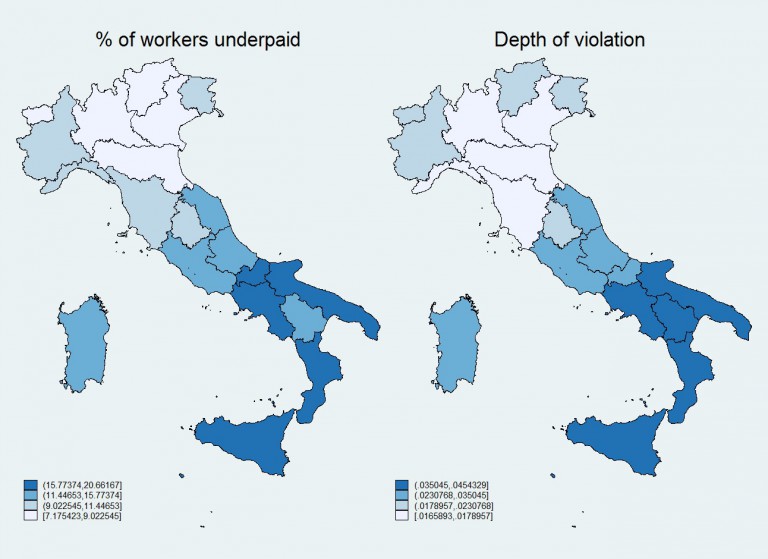Research on minimum wages focuses mainly on their impact on employment. More recently some papers have looked also at prices, profits and productivity. But they disregard a potentially important issue: non-compliance.
Economists tend to assume that the minimum wage is respected by all firms, which is not the case, especially where authorities seem to turn a blind eye. There have been some attempts to estimate non-compliance with national minimum wages, especially in developing and emerging economies (see IZA World of Labor for an overview).
A new IZA Discussion Paper by Andrea Garnero (OECD, ULB and IZA) extends the research on this topic by looking at non-compliance in the case of wage floors set by collective bargaining at the sectoral level in Italy. The results show that non-compliance rates are sizeable (around 10%) and also the amount of underpayment is quite large (20%, which means e.g. a loss of 200 euros for the worker when the wage floor is 1,000 euros per month).
 “Not surprisingly, non-compliance is particularly high in the South and in micro and small firms, and it affects especially women and temporary workers. Overall, the Italian collective bargaining system seems unable to safeguard a level playing field for firms and ensure that minimum wage increases are effectively reflected into pay increases for workers at the bottom of the distribution,” says Garnero.
“Not surprisingly, non-compliance is particularly high in the South and in micro and small firms, and it affects especially women and temporary workers. Overall, the Italian collective bargaining system seems unable to safeguard a level playing field for firms and ensure that minimum wage increases are effectively reflected into pay increases for workers at the bottom of the distribution,” says Garnero.
His paper therefore develops a series of relatively simple and almost free-of-cost policies to increase compliance beyond more effective inspections:
- Streamline the number of collective agreements
- Ensure that agreements are signed by representative unions and employers’ organizations
- Make the information on negotiated wages publicly and easily available
- Establish a helpline and/or an online form for employers and workers
- Awareness campaigns
- Name and shame